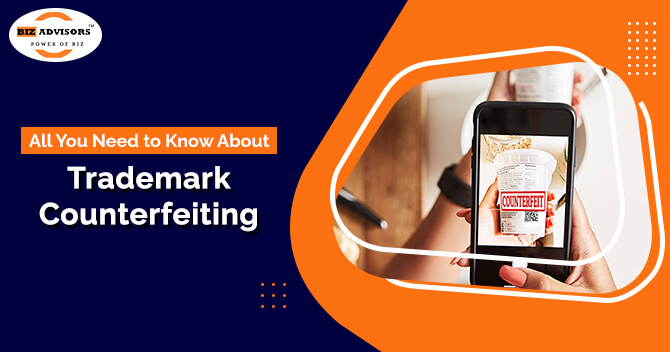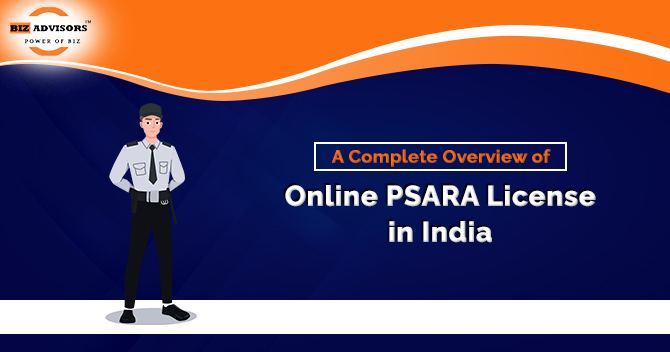It could be challenging to accept that the Indian Trade Marks Act, of 1991, contains no definition of the term “counterfeiting.” Counterfeiting is the act of marketing, promoting, or creating goods or services that are identified by legally registered trademarks. Broadly stated, counterfeits are illegal goods or services that are offered for sale in violation of a copyright, trademark, patent, or other intellectual property right. To combat the rising rate of counterfeiting, organizations like INTERPOL and WIPO are developing action plans. To know about Trademark Counterfeiting, read the full article.
What is Trademark Counterfeiting?
When a registered trademark is used on a good or service that isn’t one of the genuine goods or services offered by the trademark owner, this practice is known as Trademark Counterfeiting. Any known manufacturing, distribution, or intent to disseminate goods with counterfeit trademarks can be categorized as it. If a mark on a product indicates that it originates from a source that is typically linked to its distribution but doesn’t, that mark becomes a counterfeit trademark and the product will be considered to wear it. As is the case with all trademark regulations, the goal of the application of Trademark Counterfeiting laws is to protect potential customers.
As long as they are used in commerce, unregistered trademarks are nonetheless protected under trademark law. The requirement that a mark is registered with the relevant legal authority before Trademark Counterfeiting Laws can be enforced provides further motivation for trademark owners to do so. A key component of proving counterfeit is frequently identifying an intent to disseminate.
According to Section 102 of the Trademark Act, trademark infringement occurs when a person creates a trademark or a deceptively similar mark without the owner’s consent. We can all agree that we have seen items from upscale companies like Burberry, Gucci, Versace, etc. from the roadside or in-street vendors, which at the very least exemplifies a true instance of trademark infringement.
How do IPR Enforcement Rules, 2007 define Trademark Counterfeiting?
The Customs Act of 1962, when combined with the IPR (Imported Goods) Enforcement Rules of 2007, forbids the importation of goods that violate IPRs. This rule also applies to any product that is copied, developed, distributed, or used in any other way in violation of Indian or foreign intellectual property laws without the consent of the rightful owner or a person duly authorized to do so by the rightful owner. The regulations stipulate that an IP owner must request the suspension of a product’s clearance at the port if they suspect it to be infringing on intellectual property rights (IPR) while registering their rights with customs. This notice must be sent in writing to the Commissioner of Customs or another certified custom officer.
A product’s clearance can be suspended at Customs’ discretion and where there are prima facie indications that it may be illegal to import a certain product in violation of an intellectual property right (IPR), as defined by the Customs Act. Only once the Commissioner issues the registration after examination, the import of allegedly breaching products into India is taken into consideration as forbidden under the meaning of Section 11 of the Customs Act, 1962.
The distinction between Trademark Counterfeiting and Trademark Infringement
While trademark infringement is always Trademark Counterfeiting, the reverse is also true. Even though they appear to be similar at first glance, there is a slight distinction between them. Counterfeiting is the act of imitating anything to mislead the intention of misleading a consumer into thinking that the product or service is identical to a trademark that has been lawfully registered about such goods, infringing against the rights of the trademark owner concerned.
When someone makes a false copy of a trademark that has been registered with the Trademark & Patent work area, it is referred to as counterfeiting and is a kind of trademark misleading infringement. There are legal options available to you if your trademark registration is being imitated.
In contrast to counterfeiting, trademark infringement is a broad and abstract concept. In India, Section 63 of the Copyright Act, of 1957[1], and Section 135 of the Trade Marks Act provide for remedies to be subject to intellectual property laws.
How to Combat
It serves as the main legislation for trademarks in India. Anyone seeking legal action against trademark infringement under the Trade Marks Act is free to pursue either criminal or civil remedies. The Trademark Act’s Section 19 provides for the protection of registered marks if they are violated by anyone, as well as the rights of an unregistered owner or licensee.
According to Section 102, the burden of demonstrating the owner’s consent to the false and fraudulent trademark application is on the accused. Additionally, Sections 103 and 105 serve as punishment provisions, providing for false Trademarks, Descriptions of Trade, etc., and resulting in the subsequent conviction of anyone previously found guilty under Sections 103 and 104.
Conclusion
A significant industry, counterfeiting is an organized crime that harms legitimate enterprises, particularly small ones, and compromises consumer safety and health, national security, and the economy. Additionally, it tries to deny government funding and places a burden on taxpayers. Anti-counterfeiting regulations provide guidelines for improved surveillance, reducing the danger connected with counterfeit items or products. You can contact our legal consultants at BizAdvisors.io for obtaining any additional information concerning Trademark Counterfeiting.
Read our article:Everything about Trademark Infringement Remedies in India
 9559179325
9559179325 9559179325
9559179325





